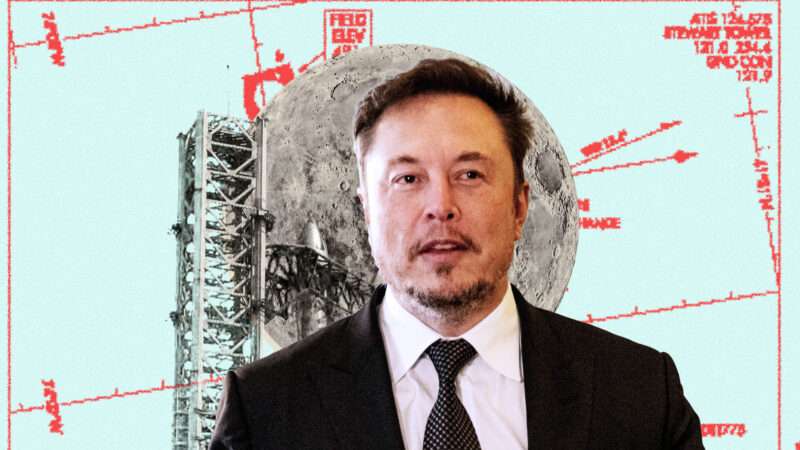
Most Americans want astronauts to get back to the moon and eventually to Mars, but those expeditions will keep getting pushed back unless the Federal Aviation Administration (FAA) can get its act together. Every rocket—regardless of who makes it—that soars into space must get licensing and approval from the FAA, but SpaceX claims that the government agency is both understaffed and too slow-moving.
SpaceX launches Falcon rockets roughly every four days, they are the industry leader by far. But as SpaceX and their competition—Blue Origin, United Launch Alliance, and other smaller companies—increase their flight rates, the industry is witnessing firsthand how the government agency is hindering NASA's ability to get back to the moon.
Back in April, SpaceX did the first test launch of Starship, which is the vehicle that NASA is relying on for the later stages of its Artemis program, which seeks to explore the lunar surface. Starship successfully made it airborne but then started shifting uncontrollably, forcing SpaceX to use the onboard flight termination system. This resulted in the destruction of the launch pad in addition to debris flying nearby to the South Texas launch facility. After assessing the destruction, the FAA then required the company to address a multitude of issues before SpaceX would be permitted to launch Starship again.
Elon Musk now claims that all of those concerns were addressed, but the FAA has still failed to approve another Starship launch. It took more than two years to get the first launch of Starship approved and there is no telling how long it could take to get the second one through. Not only is this making SpaceX rethink trying to get other rockets approved for takeoff at the moment, but it is also delaying the Artemis program. Ultimately, Artemis III will not happen without Starship—which means the hope of getting back to the moon by the end of 2025 is looking more and more unlikely.
Tim Hughes, senior vice president at SpaceX, told the Washington Post, "We'd very much like the government to be able to move as quickly as we are. If you're able to build a rocket faster than the government can regulate it, that's upside down, and that needs to be addressed. So we think some regulatory reforms are needed."
Regulatory reform of the FAA could take on a few different forms, but SpaceX suggests that the government agency double its licensing staff. Anything that would streamline the cumbersome approval process at this point would help—even if that means throwing the process out and starting from scratch.
The snail pace at which the FAA gets launch licenses approved is putting the private space industry in jeopardy. Of course, launches should be reviewed for safety, but there's no excuse for why that assessment takes years. "Next year could be a pretty dynamic time with lots of providers in spaceflight," a SpaceX official told ArsTechnica, so let's hope that the FAA speeds up its process or just gets out of the way entirely.
The post SpaceX: FAA Is Slowing Progress to the Moon appeared first on Reason.com.







